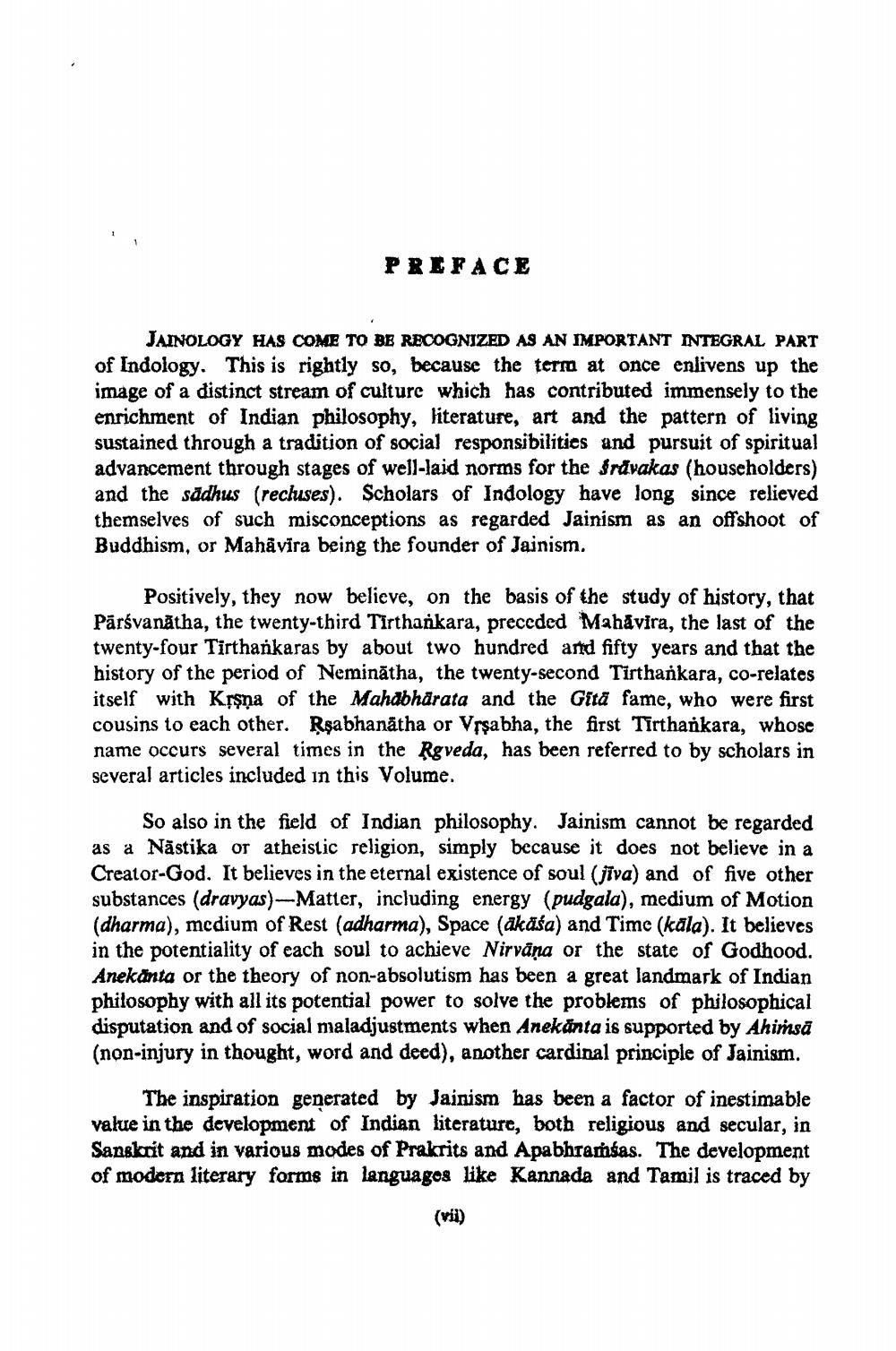Book Title: Jaina Art and Architecture Vol 01 Author(s): A Ghosh Publisher: Bharatiya Gyanpith View full book textPage 7
________________ PRIPACE JAINOLOGY HAS COME TO BE RECOGNIZED AS AN IMPORTANT INTEGRAL PART of Indology. This is rightly so, because the term at once enlivens up the image of a distinct stream of culture which has contributed immensely to the enrichment of Indian philosophy, literature, art and the pattern of living sustained through a tradition of social responsibilities and pursuit of spiritual advancement through stages of well-laid norms for the gravakas (householders) and the sådhus (recluses). Scholars of Indology have long since relieved themselves of such misconceptions as regarded Jainism as an offshoot of Buddhism, or Mahavira being the founder of Jainism. Positively, they now believe, on the basis of the study of history, that Pārsvanātha, the twenty-third Tirthankara, preceded Mahavira, the last twenty-four Tirthankaras by about two hundred and fifty years and that the history of the period of Neminātha, the twenty-second Tirthankara, co-relates itself with Krsna of the Mahabharata and the Gită fame, who were first usins to each other. Rşabhanātha or Vrsabha, the first Tirthankara, whose name occurs several times in the Rgveda, has been referred to by scholars in several articles included in this Volume. So also in the field of Indian philosophy. Jainism cannot be regarded as a Nästika of atheistic religion, simply because it does not believe in a Creator-God. It believes in the eternal existence of soul (jiva) and of five other substances (dravyas)-Matter, including energy (pudgala), medium of Motion (dharma), mcdium of Rest (adharma), Space (akaśa) and Time (kāla). It believes in the potentiality of each soul to achieve Nirvana or the state of Godhood. Anekänta or the theory of non-absolutism has been a great landmark of Indian philosophy with all its potential power to solve the problems of philosophical disputation and of social maladjustments when Anekånta is supported by Ahirsā (non-injury in thought, word and deed), another cardinal principle of Jainism. The inspiration generated by Jainism has been a factor of inestimable value in the development of Indian literature, both religious and secular, in Sanskrit and in various modes of Prakrits and Apabhranías. The development of modern literary forms in languages like Kannada and Tamil is traced by (vii)Page Navigation
1 ... 5 6 7 8 9 10 11 12 13 14 15 16 17 18 19 20 21 22 23 24 25 26 27 28 29 30 31 32 33 34 35 36 37 38 39 40 41 42 43 44 45 46 47 48 49 50 51 52 53 54 55 56 57 58 59 60 61 62 63 64 65 66 67 68 69 70 71 72 ... 345
